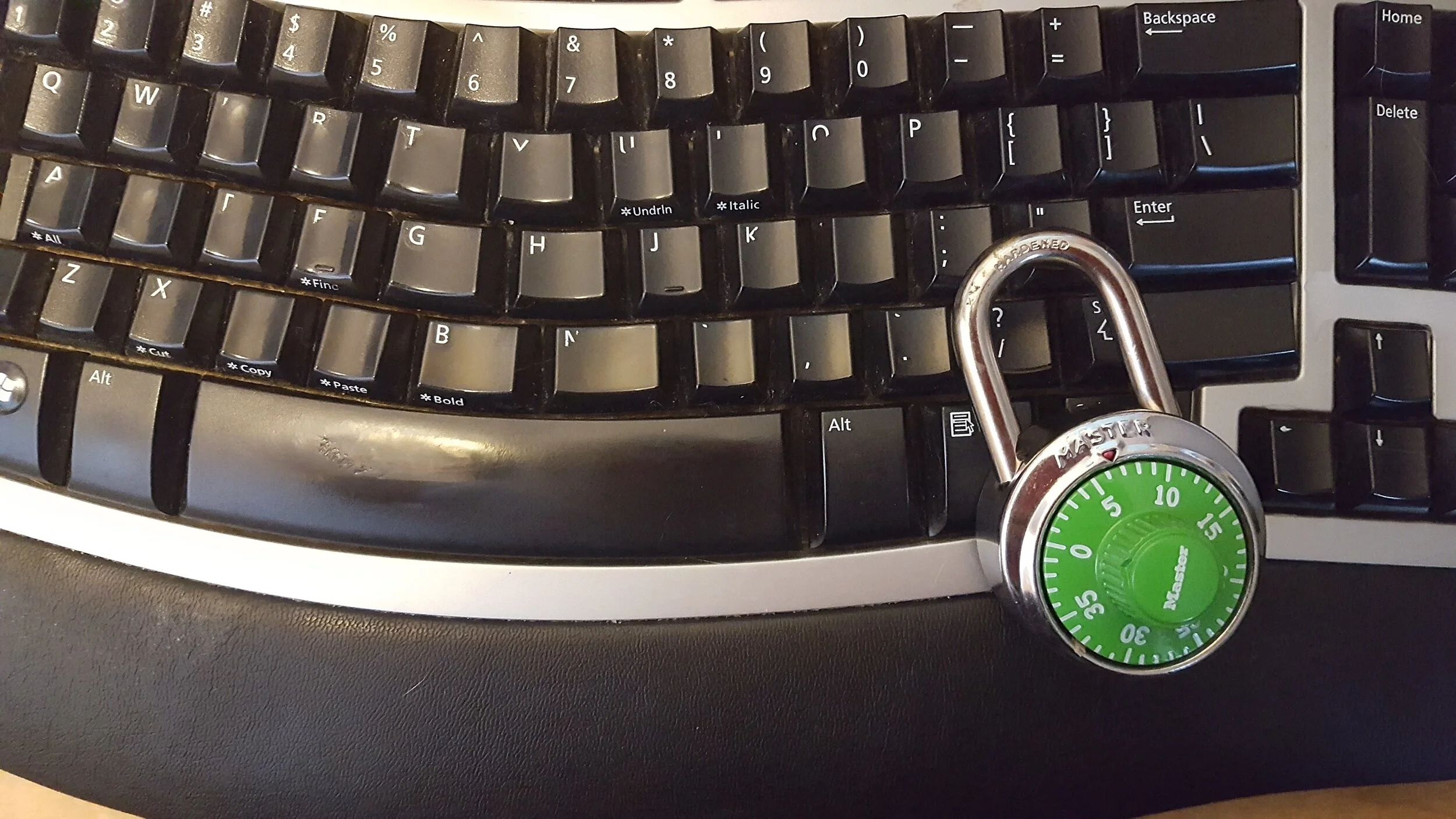YOUR CYBER SECURITY
Internet, aka cyber security, is a big business on both sides: For those with evil intentions and exceptional hacking skills through which they steal and extort money from their online targets, and those who work to prevent cyber attacks through paid antivirus programs or software repairs when it’s already too late. It is big business and a big problem. With a large and ever-increasing number of our business activities and programs living online, online security is a BIG deal!
Having good practices, as well as efficient programs in two key areas can help keep your email, website and other programs safe (or safer at least).
1. Passwords
Everyone has a plethora of passwords to remember nowadays, and who can possibly remember every password and PIN (and no, you really mustn’t use easy to hack 12345 or your street name or birth date). I strongly recommend using a password manager program!
It stores ALL your passwords and with one click will auto-fill any of your logins. You need to remember only one strong Master password to access your ‘vault’ with all your and your clients’ details. I use LastPass, which is quite easy to use and has a high security rating, even on a free plan. Just be sure you can remember your Master password, as the usual “forgot my password” reset does not work with most password manager programs!
A few Password Tips:
Setup ALL available password and account recovery options that your password manager program offers, e.g. a clear password hint, two-factor verification, or fingerprint recognition for mobile logins.
If you write down your master password somewhere, make sure it is not anywhere near your computer and not easy to find.
Don't use the same and easy password for multiple programs.
For more details and a comparison of various providers, like Dashlane or Roboform, see this list of Top 12 The Best Password Managers for 2021 by @PC Magazine.
2. Website Security
I hate hackers. I really think what they do other people’s emails, websites and bank accounts is evil. You need to protect your online pages and programs with anti-virus programs, firewalls and website security to prevent phishing, hacking, and sneaky malware or ransomware installations.
Just recently, a client’s website flagged and prevented multiple login attempts from unknown sources. While they failed to succeed entirely, the website was blocked and briefly blacklisted by the Google search engine and several browsers. As a result, I couldn’t even log into our WordPress account. That was a stressful discovery! Thankfully, we had purchased a website security program from our web host (thank you @GoDaddy!) and their tech support did a malware removal for us and restored access.
To prevent your email or website from getting hacked and abused, don’t take shortcuts with your antivirus protection software and install a reputable program, like McAfee, Norton, Bitdefender or Kaspersky (rated Top 5 by PC Magazine).
A few Tips to keep your website safe:
Keep your software and website plugins up to date. Always.
Use secure passwords – see point above.
Setup HTTPS and an SSL Certificate for your website to make online access safe.
Have a backup of your web content.
Read the full article for details and 10 Tips to improve your website security.
The Canadian Centre for Cyber Security has more information if you want to ‘geek out’ over more facts. https://cyber.gc.ca/en/
Stay safe online!

